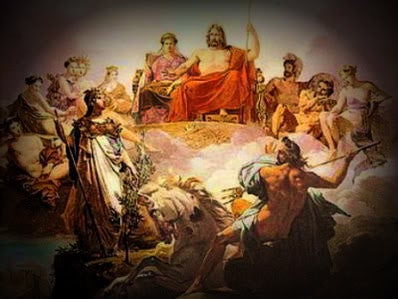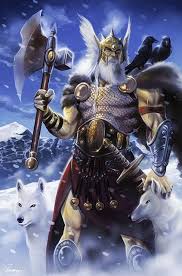T
This post compares Plautus and Shakespeare and their respective backgrounds. These playwrights had similar styles and techniques, despite the massive gap in space and time between their lives.2014-2015 Latin 4/5
Friday, January 16, 2015
Wednesday, January 7, 2015
Latin Letters
The purpose of this blog is to discuss the letters of Ancient Rome. Every letter that was written had a specific structure, style, and intent. The letters were also written on a myriad different materials. Keep reading to learn more about the techniques and types of Latin letters.
Battle Tactics of the Celts
I thought it was really interesting the way Caesar describes the Gauls while we were reading Caesar's Gallic Wars. He had a lot of respect for them when he wrote about them, but when he spoke to his troops he found ways to tear them down. This led me to want to research what the Celtic warriors were really like. A lot of the information I found was actually based of Julius Caesar's writing, but there are also a lot of ancient Celtic resources that have been preserved.
Warriors
The Gauls were known to be barbaric warriors. They were fiercely aggressive and were able to conquer land very quickly with intimidation. In early battles the men would fight naked in order to put fear into their enemy. To show that they were confident enough in their abilities to be so vulnerable must have been very intimidating. In the time of the Gallic Wars, the Celtic warriors were very different. They are describes as wearing shiny gold-like armor with leather shields and bronze covered iron swords. These men would lime their hair in order to make it stiff and they would push it back to the nape of their neck making it appear like a helmet or an animal's head. This made them appear larger and more frightening. The Gauls were also the first to invent chain mail which gave them an advantage.
Battle Tactics
Even though the Gauls were good warriors, their tactics still revolved around intimidation so that they could instill fear in their enemy and lower the enemy's confidence before going into war with them. The Gauls would bang their iron swords against their leather shields which made a thunderous sound. They had brightly colored and meticulously detailed chariots to show how skilled they were in every facet. The Gauls also had horses which against the Romans wasn't impressive, but against smaller tribes was.
Product
For my product I wanted to compare the way that the Celts use intimidation versus other cultures, and come up with new ways to create fear in their enemies.
http://prezi.com/ukjyn_loj5k7/?utm_campaign=share&utm_medium=copy
Works Cited:
BBC News. BBC, n.d. Web. 07 Jan. 2015.
"Celtic Warriors." Celtic Warriors. N.p., n.d. Web. 07 Jan. 2015.
"Interesting Facts about the Ancient Celts." Eupedia. N.p., n.d. Web. 22 Dec. 2014.
Heckart, Kelley. "The Ancient Celts." The Ancient Celts. N.p., n.d. Web. 22 Dec. 2014
Warriors
 |
Battle Tactics
Even though the Gauls were good warriors, their tactics still revolved around intimidation so that they could instill fear in their enemy and lower the enemy's confidence before going into war with them. The Gauls would bang their iron swords against their leather shields which made a thunderous sound. They had brightly colored and meticulously detailed chariots to show how skilled they were in every facet. The Gauls also had horses which against the Romans wasn't impressive, but against smaller tribes was.
Product
For my product I wanted to compare the way that the Celts use intimidation versus other cultures, and come up with new ways to create fear in their enemies.
http://prezi.com/ukjyn_loj5k7/?utm_campaign=share&utm_medium=copy
Works Cited:
BBC News. BBC, n.d. Web. 07 Jan. 2015.
"Celtic Warriors." Celtic Warriors. N.p., n.d. Web. 07 Jan. 2015.
"Interesting Facts about the Ancient Celts." Eupedia. N.p., n.d. Web. 22 Dec. 2014.
Heckart, Kelley. "The Ancient Celts." The Ancient Celts. N.p., n.d. Web. 22 Dec. 2014
Tuesday, January 6, 2015
Why Vicitur Is Greater Than The Roman Gods
Five Reasons Vicitur is Greater Than The Roman Gods


1. Vicitur is devoted to the Roman people and their well being. He has proven his devotion time and again by healing and providing good fortune to his followers. Unlike the Roman Gods, he has never exacted revenge against his followers for any reason. Vicitur is a loving and compassionate god that brings nothing but happiness to his followers
2. He takes fewer sacrifices and prayers but returns more good to his followers. All Roman Gods require frequent and elaborate sacrifices made to them that are time consuming and costly. Vicitur requires only one minor sacrifice made to him every month and he will answer any prayer or request made to him with the utmost wisdom.
3. One does not have to pray to different gods for different blessings, one only has to pray to Vicitur for any matter that arises because he is the only god. This is the advantage of a monotheistic god. Less time is wasted on figuring out which gods to pray to and more time is spent praying to the god.
4. Whether eating dinner at the villa, relaxing at the thermae, or strolling through the via, one simply has to send Vicitur a prayer and he will answer swiftly and with sincerity. On the other hand, a roman God, such as the belligerent and arrogant Mars, will not even respond to his believers unless they pray to him from a designated location. Truly only a selfish Roman god would act this way.
5. Unlike the Roman Gods, Vicitur is very forgiving. He does not require that rituals or sacraments be performed to the T, he simply requires that the effort is made to contact him. Jupiter on the other hand will not respond to his followers unless they do exactly as he has said. If a follower of Jupiter were to make even one minor mistake, Jupiter would deny them of his help.
Monday, January 5, 2015
Roman Gods
 The Roman gods were based on the ancient Greek gods. Roman gods were also comprised of an incorporation of other gods from other various other religions including Egyptian, African, and Middle Eastern religions. The Roman gods were an extension of all aspects of life. This is the reason for their polytheistic faith, and the incorporation of new gods. For example Ares was the Greek god of war. The Romans adopted Ares in the form of the god Mars, also the god of war. The Romans also related other gods to their own. A major example of this was the use of Isis in Roman colonies in Egypt, where Isis was related to Hera. Hera was the Roman god of family, and because Isis displayed the same duties to the home the Romans very closely related them. Overall, the Romans were a very diverse religious group, who were devoted to celebrating each and every god that was included in there vast religion.
The Roman gods were based on the ancient Greek gods. Roman gods were also comprised of an incorporation of other gods from other various other religions including Egyptian, African, and Middle Eastern religions. The Roman gods were an extension of all aspects of life. This is the reason for their polytheistic faith, and the incorporation of new gods. For example Ares was the Greek god of war. The Romans adopted Ares in the form of the god Mars, also the god of war. The Romans also related other gods to their own. A major example of this was the use of Isis in Roman colonies in Egypt, where Isis was related to Hera. Hera was the Roman god of family, and because Isis displayed the same duties to the home the Romans very closely related them. Overall, the Romans were a very diverse religious group, who were devoted to celebrating each and every god that was included in there vast religion.Roman citizens practiced religion heavily in their day-to-day lives. Each Roman household contained a private shrine to the gods of the house and family. Prayers were said at least once a day by all citizens. Roman politicians and aristocrats also believed that erecting public temples and shrines would win them favor with any particular god.
 |
| Pantheon, Rome |
See Project for more information and also take a look at our "Conversion Sales Pitch".
Norse Gods vs Vicitur
The Norse Gods obviously are not nearly as powerful or as worshiped as Vicitur, the greatest of them all. All that are conquered are forced to worship Vicitur as their only god, since he will protect and rule over everyone and make them his slaves. All of the Norse Gods that would try and fight Vicitur would easily be destroyed and even become godly slaves to Vicitur.
 VS
VS 
Vicitur fighting one of the Norse Gods in an intense battle.
Norse Gods all have stories of how they got to fame and tales of their adventures. Vicitur came from the bottom of the Mediterranean Sea in a rage after the Romans on the water above disturbed his 100 year rest. He rose from the sea and wanted to destroy all of the Romans for their horrible act they did to Vicitur. But Vicitur decided that he could help the Romans expand upon to conquer the entire world. The Romans became Vicitur's slaves, but were told to never write or talk about him. To the rest of the world at the time and even today, Vicitur has become a silent god that many people do not want to talk about, for fear of angering him and causing worldwide catastrophes. Vicitur is said to have gone back to the ocean, where he sleeps and waits for another foolish mortal to wake him.
 VS
VS 
Vicitur fighting one of the Norse Gods in an intense battle.
Norse Gods all have stories of how they got to fame and tales of their adventures. Vicitur came from the bottom of the Mediterranean Sea in a rage after the Romans on the water above disturbed his 100 year rest. He rose from the sea and wanted to destroy all of the Romans for their horrible act they did to Vicitur. But Vicitur decided that he could help the Romans expand upon to conquer the entire world. The Romans became Vicitur's slaves, but were told to never write or talk about him. To the rest of the world at the time and even today, Vicitur has become a silent god that many people do not want to talk about, for fear of angering him and causing worldwide catastrophes. Vicitur is said to have gone back to the ocean, where he sleeps and waits for another foolish mortal to wake him.
Vicitur, a God for the Newly Romanized
Have you been accepted into the Roman Empire? Feeling like accepting the mandatory regulations on religion we have for you? Do you not want to be made a slave, or gladiator? Then get ready to accept your new god, Vicitur! Vicitur represents three things: Prosperity, strength, and acceptance. Vicitur sits on the steps to the Pantheon. Instead of sitting among the gods of Rome, he waits for those seeking religion to come to him. Think of him as a "final check" before those new Roman citizens- if you would normally climb those thousands of steps to the Pantheon and sit with the archaic, weak Roman gods, you can instead enjoy a life with Vicitur.

What does Vicitur represent? Vicitur is a god who represents acceptance, strength, and prosperity. He takes under his watchful eyes those who do not want to be fully in the polytheistic Roman religion. He grants those newly Romanized men strength to volunteer in the Roman army. Most of all, he helps those who the empire has conquered to be strong as they change their religion and way of life.
Vicitur has several symbols. The first is the lobster, a symbol of strength and durability.

The second is the plum, the most changeable fruit, delicious in all its forms. The final symbol is grass, showing how Vicitur is ever-present as grass and just as strong.



Pictured: Vicitur, artist's representation.
Vicitur has several symbols. The first is the lobster, a symbol of strength and durability.
The second is the plum, the most changeable fruit, delicious in all its forms. The final symbol is grass, showing how Vicitur is ever-present as grass and just as strong.

Subscribe to:
Posts (Atom)